Published Jan 28, 2013
Catching Up With TNG's Capt. Garrett, Tricia O'Neil
Catching Up With TNG's Capt. Garrett, Tricia O'Neil
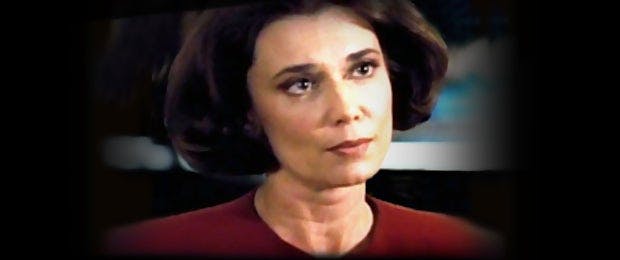
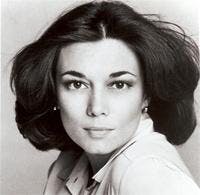
Tricia O’Neil seemed at once awed and confused. The actress – who’d played Captain Rachel Garrett in TNG’s’ “Yesterday’s Enterprise,” Kurak in TNG’s “Suspicions” and Korinas in the DS9 hour “Defiant” -- was in London this past fall for the big Destination Star Trek event, and she was reacting to the goings-on around her: Star Trek stars from the various series milled about, journalists swooped in for interviews and, just a short time later, thousands of fans poured through the entrance to start day one of the blockbuster weekend. Anyone there might have marveled at what O’Neil witnessed, but bear in mind, this was her first convention… ever (as a guest, anyway). O’Neil went on to spend the weekend at DSTL, reminiscing on the stage, posing for photos with fans and signing lots of autographs. The actress promised to chat with StarTrek.com upon her return, and she kept that promise last week. Here’s what she had to say about her trio of Trek guest shots, appearance at DSTL and life today.DSTL was your very first convention. How did you enjoy the experience?O’Neil: I’d never experienced anything quite like that in my life. I said yes, but I was intimidated by the prospect. At the same time, I wanted to go to London and I wanted to see what a convention was like. One time, actually, there was a convention here in Los Angeles. I thought I’d go and look and see what it was like – as a fan, as a person, because I’d always been a fan of Star Trek. I was standing in line to get a ticket and I got almost to the box office and someone behind me said, “Captain Rachel Garrett! Captain Rachel Garrett!” People turned around. I turned around. People just came toward me, and the next thing I knew, the people who were running things there came and got me and took me away. I was mobbed with enthusiasm, and I was so overcome. DSTL was different. I wound up talking from the stage, in front of all these people. I walked out on stage and light bulbs went off, and I just loved the camaraderie of it and being a part of it. And the fans were amazing. They knew more about the characters, especially Rachel Garrett, than I remembered.Would you do more convention appearances? Perhaps in the U.S.?O’Neil: Yes, I would. Richard Arnold came while I was signing some cards and said that there were other ones here, in the U.S., and would I be interested? I said, “Yes.” It’s a fantastic experience to be part of all of that, part of a legacy like Star Trek. It’s about people’s hopes and wishes, for people all over, everywhere, and they’re joined by their love for Star Trek. It’s almost magical.Let’s go back to Captain Garrett. What impressed you most about the character, as a person?O’Neil: She had dedication. She had extraordinary courage. She had command of her life and the lives of other people, her crew. Her choices were very powerful and very hard and, for me, the person who was playing her, I was released to believe what she believed. That’s what actors try to do; we try to be these characters we play while we’re playing them. So I had the experience of being the captain of a starship. I wear it as a badge of honor that I played the first female captain of the Enterprise.
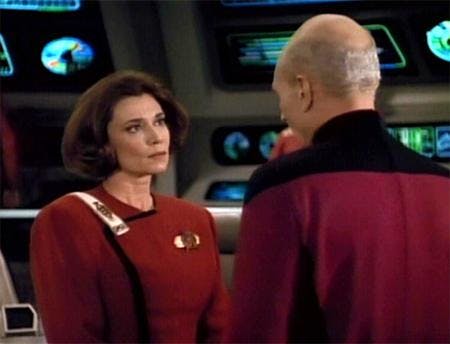
Did you audition for the role?O’Neil: No. I’d auditioned for other roles on the show. I didn’t get those, but they called me in to play Captain Garrett.You were with James Cameron when you got word that you were up for the part, right?O’Neil: Yes. I was on a diving trip with Jim Cameron. I was the star of the first movie he ever directed, and we were dive buddies. I was with him, diving, and that’s when I heard that I was up for it. So I then had to go back to L.A. And when I got the part, I was at home, and I jumped up and down on the coffee table in my living room. I was just elated.What do you remember about being on set, about the production?O’Neil: I knew what that captain’s chair was and when I, Tricia O’Neil, sat in that chair, I understood the importance of it. A lot of people work on these shows -- people who build the sets and the props and make the costumes – and the work is so good you can absolutely suspend your disbelief of things. Everything becomes very real and, if you let go of not believing, you can sail right into a whole world. Sitting in that chair as captain of the U.S.S. Enterprise, that’s who I was for a week or so. It was an extraordinary experience. All of the people involved were so talented: the writers, the actors, the set people. Everything is so much bigger than you, but it supports who you are being at the time, for the story.
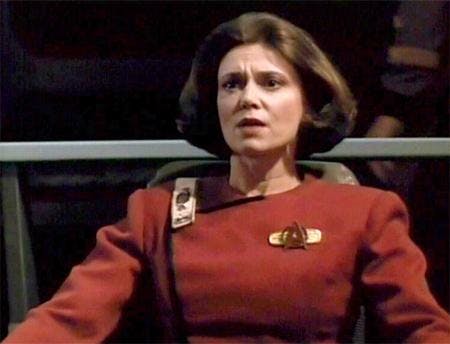
What was it like to return to the same show several years later as a different character, and to endure the Klingon makeup?O’Neil: The makeup was difficult, but once I saw it, it was such a support to believe the world, to get into character. I knew Klingons and I knew the difficulty this particular Klingon was involved in because she was advancing. She had the great weight on her shoulders of being intelligent, of being a scientist, and she was crossing barriers. But she was still a Klingon, so she was very… not savage, but physical, where a lot of muscle was still involved, even though she was crossing over into being a scientist. So, as passionate as she was, she also had to be restrained in a way that was not easy for her. So, when she pushed Dr. Crusher around, she was being jousted with, and that tested her.
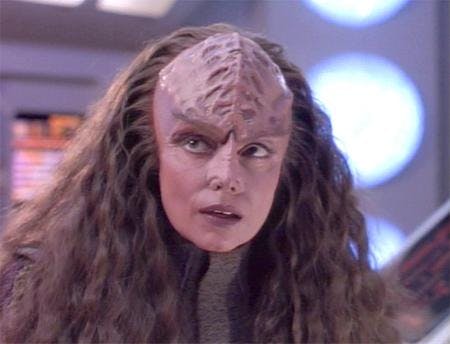
You returned to Paramount and to Trek a year and a half later, this time for DS9. What do you remember of playing a Cardassian?O’Neil: It was a darker set, a more closed-in feeling, though I think that may have had something to do with the makeup. My makeup was confining. I’d also done a makeup role for Babylon 5, but the Cardassian makeup was difficult. It was hard breathing. You felt trapped in the confines of the costume, too. It was rigid. The character had an undercurrent of falsehood, somehow, and as an actor that makes you tense and apprehensive and withdrawn in some ways. So, for me, a lot depends on the internal things that are going on with a character. That affects how you feel when you look at yourself in the mirror. How the makeup makes you appear affects how you think of a character. It’s all a thinking process.
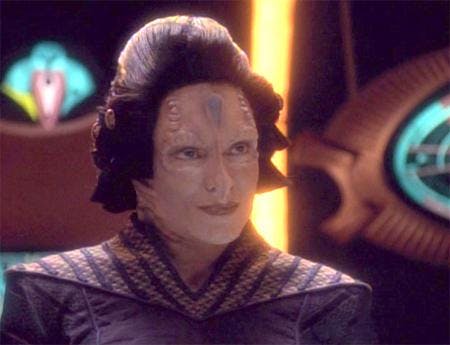
What are you up to these days?O’Neil: I have some things that are possibly coming up, but I really haven’t been acting, I guess, for the past five years or so. I’ve been dabbling in theater in a little bit, because that’s how I started in the business. I did theater in New York. I was Richard Rodgers’ last ingénue back in the 1970s and my past has been as a singer. I only got into television when I came out here to L.A. So I’m visiting singing again and theater, and I teach on occasion, too. I may look for more TV work. Doing the event in London, it gave me interest again in a craft that I hadn’t really been practicing for a while. It was so rejuvenating.

